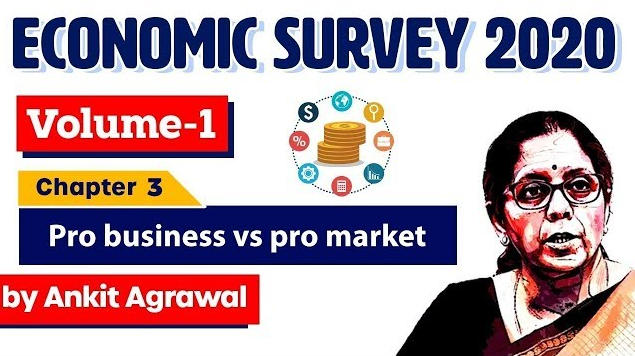Table of Contents
INTRODUCTION
- India’s aspiration to become a $5 trillion economy depends critically on promoting “pro-business” policy.
- Pro-business policy helps in 2 ways:-
- It unleashes the power of competitive markets to generate wealth.
- Takes away from “pro-crony” policy that may favour specific private interests.
- Economic events since 1991 provide powerful evidence supporting this crucial distinction.
- Viewed from the lens of the Stock market, which captures the pulse of any economy,
- creative destruction has increased significantly after reform.
LIBERALIZATION & WEALTH CREATION
- The liberalization of the Indian economy in 1991 unleashed competitive markets.
- It enabled the forces of creative destruction, generating benefits that we still witness today.
- After the market reforms of 1991, Sensex has not only grown, but has grown at an accelerating pace.

RELATIONSHIP BETWEEN PRO-BUSINESS POLICY & CREATIVE DESTRUCTION
- This relationship is mirrored in the composition of the Sensex over the years.
- For the first ten years since the Sensex’s inception in 1986, the firms that constituted the index barely changed.
- Sensex of 1997 were steadily churned out over the next decade, so that the Sensex of 2006 had barely half the firms from the Sensex of 1997.


WHY THIS HAPPENED?
- The years following 1991 liberalization saw the rapid emergence of new firms, new ideas, new technologies and new operating processes.
- Had liberalization not occurred, a firm that entered the index in 1986 could have expected to stay on the index for the next sixty years.
- Currently, a firm is expected to remain on the index for only 12 years
WAS IT BENEFICIAL TO THE INDIAN ECONOMY?
- After Liberalisation, new sectors like banks and financials entered the index for the first time.
- It eroded the predominance of the manufacturing sector on the index, placing the services sector on the map for the first time.



- This churn in the Sensex represents a very real process of creative destruction that brought altogether new technologies, products and services to consumers.
INSIGHTS EMERGE FROM THIS ANALYSIS
- Monopoly power in the economy is declining and making way for more competitive markets.
- Consumers benefit from an increased variety of goods and services, lower prices and improvement in the quality of existing products.
PRO-BUSINESS VS PRO-CRONY
- There is a common misconception that people who are in favour of a free market are also in favour of everything that big business does.
- Nothing could be further from the truth

WHY CREATIVE DESTRUCTION IS GOOD?
- Creative destruction brings new innovations into the market that serve people better than the old technologies they displace.
- When creative destruction is fostered, sectors as a whole will always outperform individual companies within the sector in creating wealth and maximizing welfare.
- Therein lies the motivation for India to pursue pro- business, rather than pro-crony, growth.
- DISCRETIONARY ALLOCATION OF NATURAL RESOURCES
- VIS-À-VIS
- ALLOCATION VIA AUCTIONS



- The cost of such wilful default is borne by the common man.
CONCLUSION
- While pro-business policies increase competition, correct market failures, or enforce business
- Pro-crony policies hurt markets, promote narrow business interests and may hurt social welfare.
Economic Survey | Free PDF






















 WhatsApp
WhatsApp